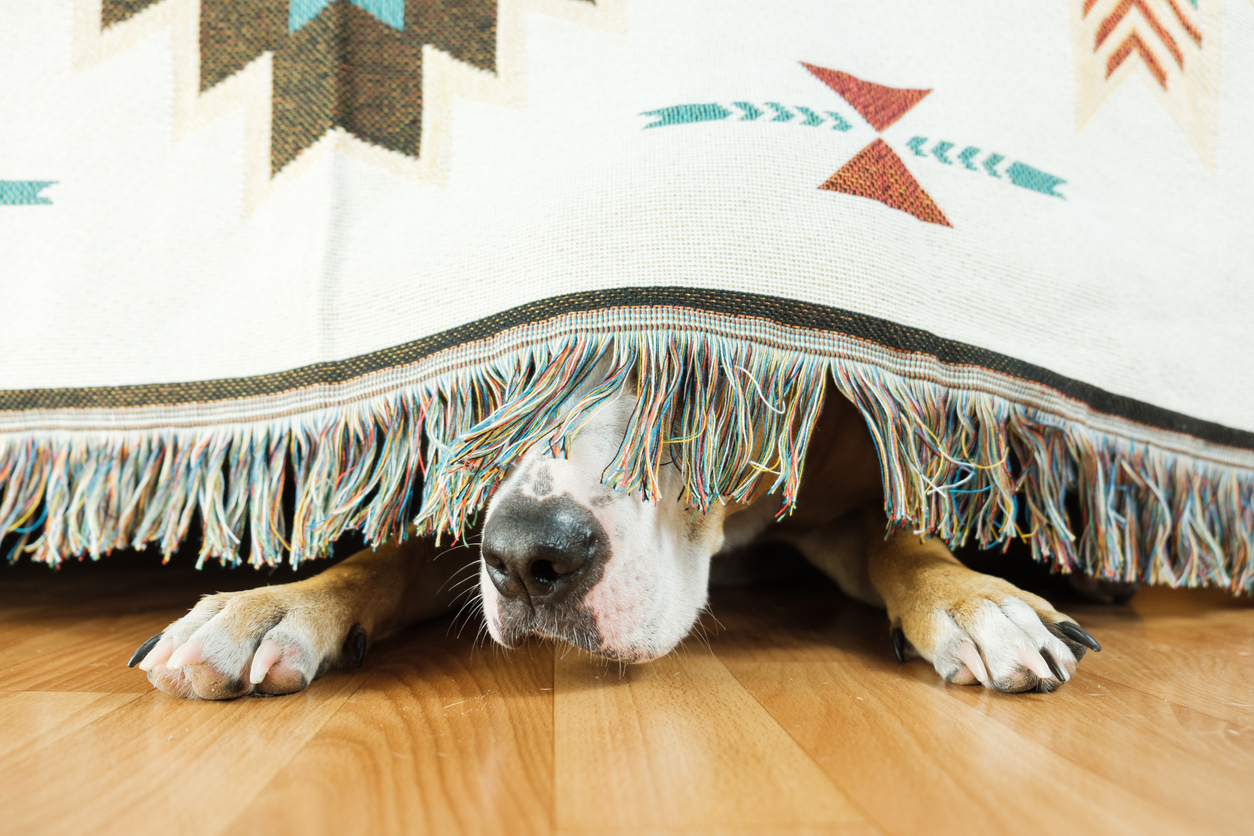Thunderstorms can be a source of great anxiety for dogs. The booming noise, bright flashes of lightning, and changes in atmospheric pressure can cause distress. As pet owners, it is our responsibility to help our furry companions feel safe and calm during such stressful times. Here, we will provide comprehensive, expert-backed strategies for easing your dog’s anxiety during thunderstorms.
Understanding Canine Anxiety During Thunderstorms
Dogs experience thunderstorms differently than humans. Their heightened senses make the sudden loud noises, vibrations, and static electricity more intense. Some dogs may pant, tremble, pace, or try to hide. Understanding the root causes of this anxiety is the first step toward soothing your pet.
Key Triggers:
- Loud noises: Thunderclaps can be overwhelming for a dog’s sensitive ears.
- Atmospheric pressure changes: Dogs sense shifts in air pressure, which can trigger feelings of unease.
- Static electricity: Some dogs can feel the buildup of static before a storm, making them restless.
- Lightning flashes: Bright, sudden flashes can disorient dogs, adding to their stress.
Preparing for Thunderstorm Season
Preparation is crucial for managing your dog’s anxiety. You can help your dog build resilience to thunderstorm fears by implementing certain practices before the storm season begins.
Create a Safe Space
Your dog should have a designated space to retreat to during thunderstorms. This can be a quiet room with limited windows or a crate where they feel safe. Use blankets, cushions, and familiar objects to make this area more comfortable. Dogs naturally seek shelter, and providing a secure, calm space can help them feel less anxious.
Desensitization and Counterconditioning
Desensitization involves gradually exposing your dog to the sounds of thunderstorms at a low volume to reduce their fear response over time. You can play recordings of thunderstorms while rewarding your dog with treats or engaging in fun activities. Over time, this method can teach your dog to associate the sound of storms with positive experiences.
Consider Anti-Anxiety Aids
There are various anti-anxiety aids available that may benefit dogs during thunderstorms:
- Pressure wraps: Items like the ThunderShirt apply gentle, constant pressure, which has a calming effect on some dogs.
- Calming pheromones: Products like diffusers and sprays release synthetic versions of calming pheromones that can help reduce anxiety.
- Music and white noise: Playing calming music or white noise can mask the sound of thunder and create a more soothing environment for your dog.
What to Do During a Thunderstorm
When a thunderstorm hits, it’s important to remain calm and provide reassurance to your dog. Dogs are incredibly attuned to their owner’s emotions, so if you stay relaxed, it will help them remain calm as well.
Stay Close but Don’t Overwhelm
While it’s natural to want to comfort your dog during a storm, avoid being overly solicitous. Too much fussing can reinforce their fear. Instead, calmly sit near them, speaking in a soothing voice and offering treats if they approach you. This helps convey that there’s nothing to fear.
Use Distraction Techniques
Distractions can be an effective way to take your dog’s mind off the storm. Engaging your dog with their favorite toys, a puzzle feeder, or treat-filled Kong can help keep them occupied during the worst parts of the storm. Mental stimulation through play or training exercises can also reduce anxiety.
Natural Remedies for Thunderstorm Anxiety
If you prefer natural approaches, several remedies can help your dog feel calmer during storms.
Herbal Supplements
Certain herbal remedies, such as valerian root, chamomile, and passionflower, are known for their calming effects on dogs. Always consult your veterinarian before administering any supplements to ensure they are safe for your dog.
CBD Oil
CBD oil is becoming increasingly popular as a natural remedy for canine anxiety. Derived from hemp, it is known for its calming properties and may help ease your dog’s stress during thunderstorms. However, dosage is key, and it’s important to use products designed specifically for pets.
When to Consult a Veterinarian
For dogs with severe anxiety, it may be necessary to consult a veterinarian for professional advice. Some dogs may require prescription medications to manage their fear during thunderstorms, especially if their anxiety is extreme and disrupts their well-being.
Veterinarians can prescribe anti-anxiety medications, such as:
- Benzodiazepines: For immediate, short-term relief.
- Antidepressants: For long-term management of anxiety.
- Sileo: A prescription gel specifically formulated to calm dogs during noise events like thunderstorms.
Long-Term Management Strategies
For dogs with chronic thunderstorm anxiety, a long-term strategy combining multiple approaches is often the most effective.
Regular Exercise and Routine
Exercise is a powerful tool for reducing anxiety. A tired dog is generally more relaxed and less likely to exhibit extreme reactions during a storm. Establishing a predictable routine also helps dogs feel more secure, which can alleviate general anxiety, including fear of thunderstorms.
Behavioral Therapy
In some cases, working with a professional dog behaviorist or trainer may be necessary to manage severe thunderstorm anxiety. They can help create a customized plan that addresses your dog’s specific needs and behaviors.
Final Thoughts on Soothing Your Dog During Thunderstorms
Helping your dog through a thunderstorm requires patience, understanding, and preparation. By creating a safe environment, using desensitization techniques, and exploring natural remedies or medical options, you can significantly reduce your dog’s anxiety during these stressful events.
For the best results, start preparing your dog before storm season begins, and always consult your veterinarian for advice tailored to your pet’s specific needs.
Yours in Paws,
The PawPaw Team.

